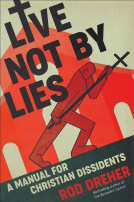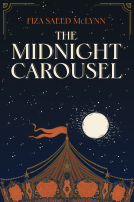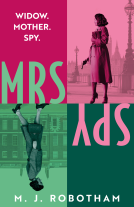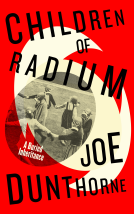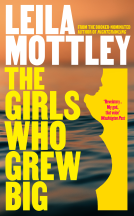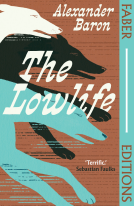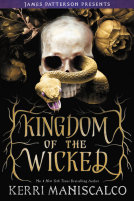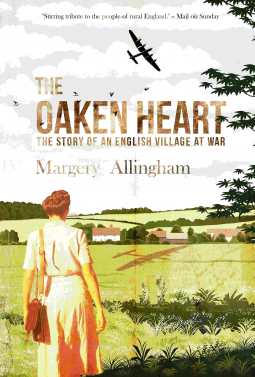
The Oaken Heart
The Story of an English Village at War
by Margery Allingham
This title was previously available on NetGalley and is now archived.
Send NetGalley books directly to your Kindle or Kindle app
1
To read on a Kindle or Kindle app, please add kindle@netgalley.com as an approved email address to receive files in your Amazon account. Click here for step-by-step instructions.
2
Also find your Kindle email address within your Amazon account, and enter it here.
Pub Date Nov 21 2017 | Archive Date Jan 24 2018
Talking about this book? Use #TheOakenHeart #NetGalley. More hashtag tips!
Description
What are your war aims, Mrs. Carter? To keep this soul I’ve got alive. To keep my spirit unenslaved.
The Oaken Heart is a testament to the hope and heart that prevailed in England throughout the war: a hope for its future and for its freedom. Written by a bestselling crime novelist as a letter of sorts to her American publisher, it is a deeply personal record of a woman and her town at the dawn of the Second World War.
Allingham beautifully follows life in Tolleshunt D'Arcy (codenamed ‘Auburn’) as the town waits with bated breath for war to break out, through the unsettling calm as war is finally declared, and as they live with the very real threat of invasion.
With wit and charm, Allingham introduces Auburn, a town united, crowded around the crackling wireless, smoothly queuing for the grotesque, elephantine gas masks, opening their homes to evacuees. She recounts Auburn’s preparedness - its unwavering readiness for the war to truly begin. And when it finally did, there was still the business of living to attend to.
Honest and unflinching, Allingham sheds light on daily life during the war, and the drive of Auburn to remain free and to fight. From nightly air raids to concern about head lice, and from the devastation of the Blitz to finding rooms for lovers’ quarrels, Allingham shows the absolute human quality of the British war effort: life goes on.
A Note From the Publisher
If you enjoyed reading Margery Allingham's 'The Oaken Heart', we'd really appreciate seeing your honest review on Amazon. Thank you and happy reading, Ipso Books.
Available Editions
| EDITION | Ebook |
| ISBN | 9781912194452 |
| PRICE | £3.99 (GBP) |
Links
Featured Reviews
 Kay S, Reviewer
Kay S, Reviewer
The Oaken Heart
by Margery Allingham
first published 1941
Reviewed by Kay Stephen
Margery Allingham, was already a famous author of classic British detective novels when she wrote this non-fictional, semi-autobiographical account of life her in an English village immediately preceding and during the early part of World War II. The original manuscript for this book started out as a series of letters she wrote to some American friends detailing her increasing involvement in village life during preparation for, and the experience of, war. These activities included the organization and billeting of evacuees, service as a First Aid Commandant, local air raid precautions and various other activities that became necessary as her country, England, got further involved in surviving the hardships caused by being at war.
The reader is treated to the ebb and flow of village life as the seasons turn, the crops are harvested and life is celebrated. The bravery and steadfastness of the British citizen is a reoccurring theme as there is never any doubt that they shall prevail against the enemy no matter how many bombs are dropped, how many men are lost, how much food is rationed or how many hardships must be endured.
One of the true pleasures of reading this publication is in hearing the opinions of an educated and social villager about the experiences and thoughts of the common person as another war became inevitable, and was eventually declared, in Britain. Allingham describes the faith which the population put into Prime minister Chamberlain during the pre-war years and how their faith was so completely shattered when he continued to talk of peace with Germany and made little, or no, attempt to train people, manufacture the required munitions or engage in the myriad of other activities that are so necessary in wartime. For example Allingham's describes in detail the debacle of sending thousands of child refugees from London to the countryside months before any fighting was experienced on the island. The reader is informed of the sheer hard work and planning that the volunteers performed, both those who helped to place the children, as well as those who accepted them into their homes. The fact that most refugees had returned home long before the air raids even started in London is just one example of inept planning by Chamberlain's government. The joy and relief upon the appointment of Prime minister Winston Churchill and the sensational inspiration his speeches brought to those gathered around their radios is palatable as described by Allingham.
Initially, Allingham's writing in The Oaken Heart is somewhat stilted, similar to that found in a formal essay written by one who is comfortable with the syntax of complex sentence structure and who has an vast, if somewhat dated, vocabulary. But as the book progresses the author appears to become more at ease and the writing tends to flow as Allingham hits her stride.
A vast array of characters are described throughout this war time tale. The village of Auburn is populated with all the classic characters the reader has come to expect in the English village -- elderly spinster sisters, church ladies, shop keepers, publicans, and a vast array of military types from Air Raid Wardens to Commissioned Officers. Yet the central character in this historical tale is actually the village of Auburn – steadfast and trustworthy.
I recommend this book to anyone interested in the history of WWII, especially as experienced by the British.
 Katrina O, Educator
Katrina O, Educator
Written in diary form, this auto-biographical novel describes the build up and beginning of the the Second World War from the viewpoint of a country dwelling woman. It is fascinating to read her inner thoughts and feelings about the countries preparation for war, and the local plans that were put in place in her village to defeat the Nazis. A true insight into the feelings of the populace as the country stood on the edge waiting for the declaration of war, and then the first two years of the war. The descriptions of the blitz and how the villagers saw London when visiting, are particularly poignant, as are the evacuees and the issue of gas masks. The fact that people were frightened to speak on the trains for fear of giving away information to the ever listening enemy! It is heartening to read about the bravery of the ordinary people, all determined to do their bit to protect their small corner of the country. Written with a view to encouraging America to support Britain, I can see how effective this would have been. A fascinating read for anyone interested in this period.
